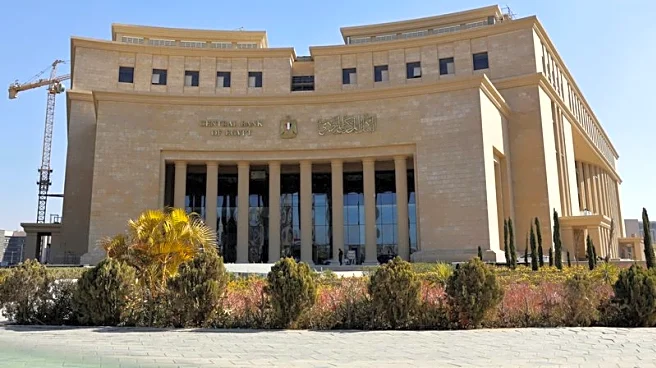What's Happening?
Assistant Minister for Agriculture and Waterways, Inosi Kuridrani, has emphasized the Fijian government's commitment to enhancing grassroots service delivery in the agricultural sector. During a familiarization tour of agriculture stations in the Western Division, Kuridrani visited locations in Rakiraki, Tavua, Ba, and Lautoka. The purpose of the tour was to engage with staff and technical officers to evaluate operations and identify areas requiring government support. Kuridrani highlighted the importance of aligning government resources with the needs of farmers, ensuring that agriculture stations continue to serve as essential hubs for crop advisory services, waterway management, and farmer outreach. He stressed the need for stronger collaboration between divisional and central teams, noting that feedback from the field would inform the Ministry's future planning and capacity-building efforts.
Why It's Important?
The reaffirmation of the government's focus on agriculture services is significant for Fiji's rural development and food security. By prioritizing service excellence and empowering frontline teams, the Ministry aims to enhance the effectiveness of agricultural support systems. This initiative is crucial for farmers who rely on government resources and advisory services to improve crop yields and manage water resources effectively. Strengthening these services can lead to increased agricultural productivity, which is vital for the country's economy and the livelihoods of those in rural areas. The government's commitment to aligning resources with farmer needs also underscores the importance of responsive and adaptive governance in addressing the challenges faced by the agricultural sector.
What's Next?
The Ministry of Agriculture plans to use the feedback gathered during the tour to shape its future planning and capacity-building efforts. This includes enhancing collaboration between divisional and central teams to ensure that the services provided are efficient and meet the needs of farmers. The focus will be on empowering frontline teams to deliver on the government's broader vision for food security and rural development. Continued engagement with agricultural stations and stakeholders will be essential to monitor progress and make necessary adjustments to policies and resource allocation.










